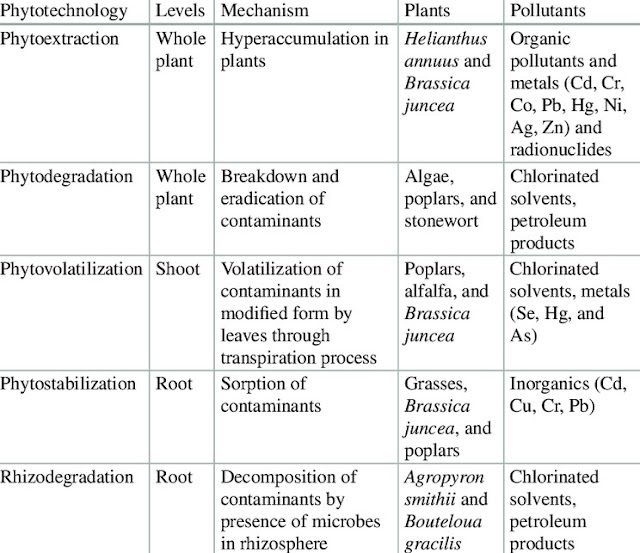The word's etymology comes from the Greek
(phyto)= plant, and Latin "remedium" = restoring balance,
or remediating. Phytoremediation consists in depolluting contaminated
soils, water or air with plants able to contain, degrade or eliminate
metals, pesticides, solvents, explosives, crude oil and its derivatives,
and various other contaminants, from the mediums that contain them.
Phytoremediation describes the treatment
of environmental problems (bioremediation) through the use of plants.

It is clean, efficient, inexpensive and non-environmentally
disruptive, as opposed to processes that require excavation of soil.
Various Phytoremediation processes: A range of
processes mediated by plants are useful in treating environmental problems
|
Phytoextraction |
Uptake and concentration of substances
from the environment into the plant biomass. |
|
Phytostabilization |
reducing the mobility of substances
in the environment, for example by limiting the leaching of substances
from the soil. |
|
Phytotransformation |
chemical modification of environmental
substances as a direct result of plant metabolism, often resulting in
their inactivation, degradation (phytodegradation) or immobilization (phytostabilization). |
|
Phytostimulation |
enhancement of soil microbial activity
for the degradation of contaminants, typically by organisms that
associate with roots. This process is also known as rhizosphere
degradation. |
|
Phytovolatilization |
removal of substances from soil or
water with release into the air, sometimes as a result of
phytotransformation to more volatile and/ or less polluting substances. |
|
Rhizofiltration |
filtering water through a mass
of roots to remove toxic substances or excess nutrients.
The pollutants remain absorbed in or adsorbed to the roots. |

Reference: Bioremediation Methods for the Recovery of Lead-Contaminated Soils: A Review
Learn more: Bioremediation | MCQ on Bioremediation and Phytoremediation

